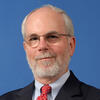BEYOND THE NUMBERS
George H.W. Bush had it right in 1980 when he labeled the claim that cutting taxes would reduce the budget deficit “voodoo economic policy.” That didn’t stop Senate Minority Leader Mitch McConnell (R-KY) from claiming last summer that the George W. Bush-era tax cuts caused no net revenue loss — a claim that even mainstream Republican economists have thoroughly debunked.
Senator McConnell has now doubled down on his upside-down economics with his claim yesterday that “the excessive government spending of the last two years is one of the reasons the private sector is not doing any better than it is” and that reducing spending “is what we really need to do and do it quickly.”
Here’s what I wrote last fall, when then-House Minority Leader Boehner made a similar claim to try to justify severe, immediate spending cuts:
Rep. Boehner claims that “excessive government spending is crowding out the private economy.” This contention makes little sense when there are large numbers of unemployed workers and substantial idle productive capacity in the private sector and when financial investors are willing to accept very low yields in return for the safety afforded by U.S. Treasury securities.
For government spending to crowd out private spending, the workers, factories, and machines needed to meet the demand generated by the government spending would have to be diverted from other productive activities. That can occur in a high-employment economy with no economic slack. But under current conditions, the situation is different. For example, when the government provides additional unemployment insurance (UI) benefits to workers struggling to find a job, businesses are benefitted rather than harmed: the benefits increase consumer demand for goods and services and thereby enable businesses to put unemployed workers back to work and put idle capacity back into production (or to refrain from cutting workforces and production even further).
Neither the Federal Reserve nor financial investors buy Rep. Boehner’s argument. If the Federal Reserve did, it would be tightening monetary policy now by raising interest rates to forestall higher inflation, which would arise if government spending were generating excess aggregate demand that put a strain on the country’s productive capacity. The truth, of course, is that the Fed is much more concerned about economic weakness right now than it is about inflation and stands ready to ease monetary policy further, not tighten it. Similarly, the appetite for U.S. Treasury securities among financial investors would not be there if they feared inflation or higher interest rates or if they were more concerned about the impact of current government spending on future deficits than about how weak the economy is right now.
The economy is a little stronger now than it was then, but the Fed’s main concern remains stubbornly high unemployment, and interest rates and inflation remain very low. In short, there’s no more evidence behind this “crowd-out” argument now than there was before.
